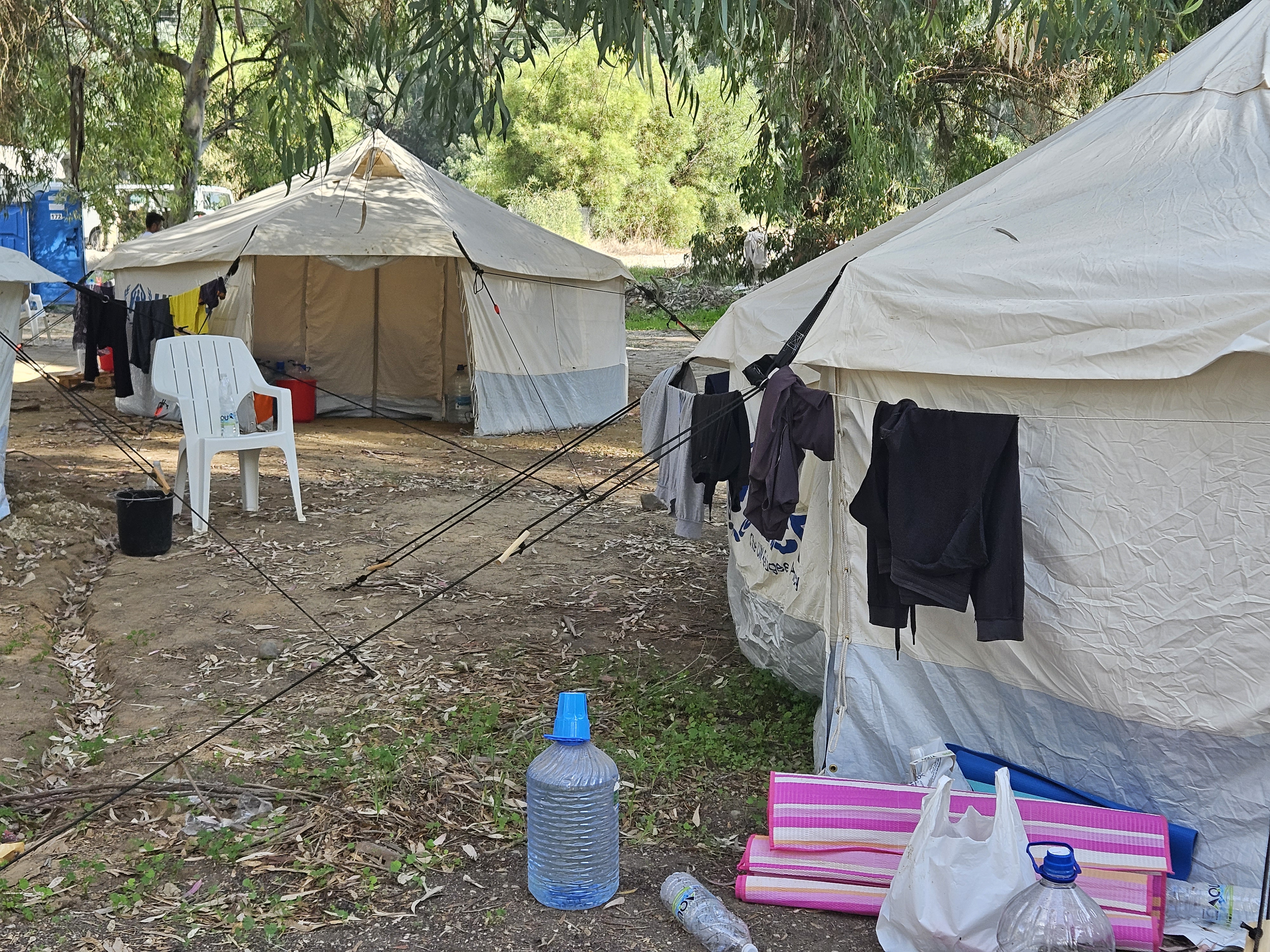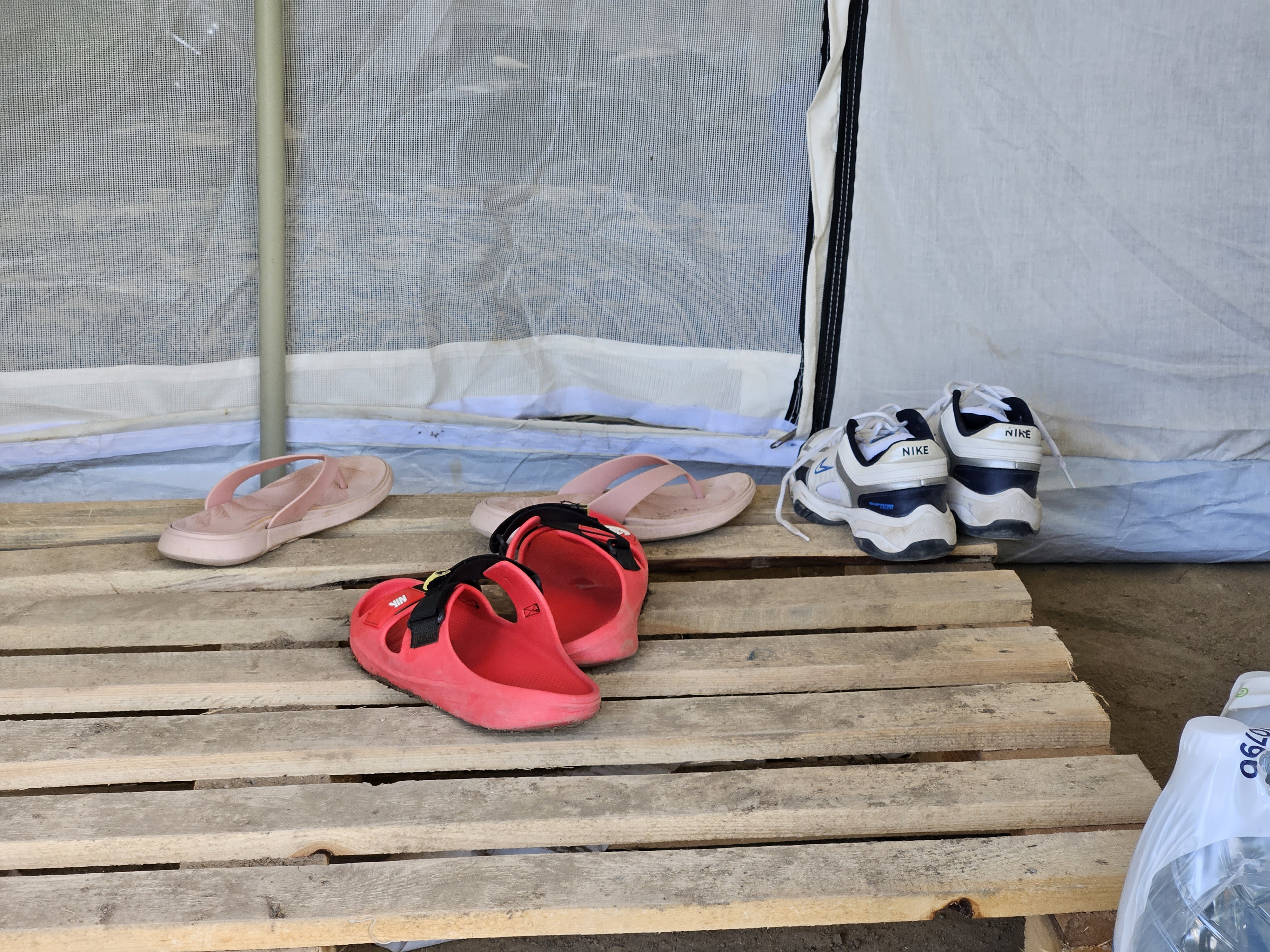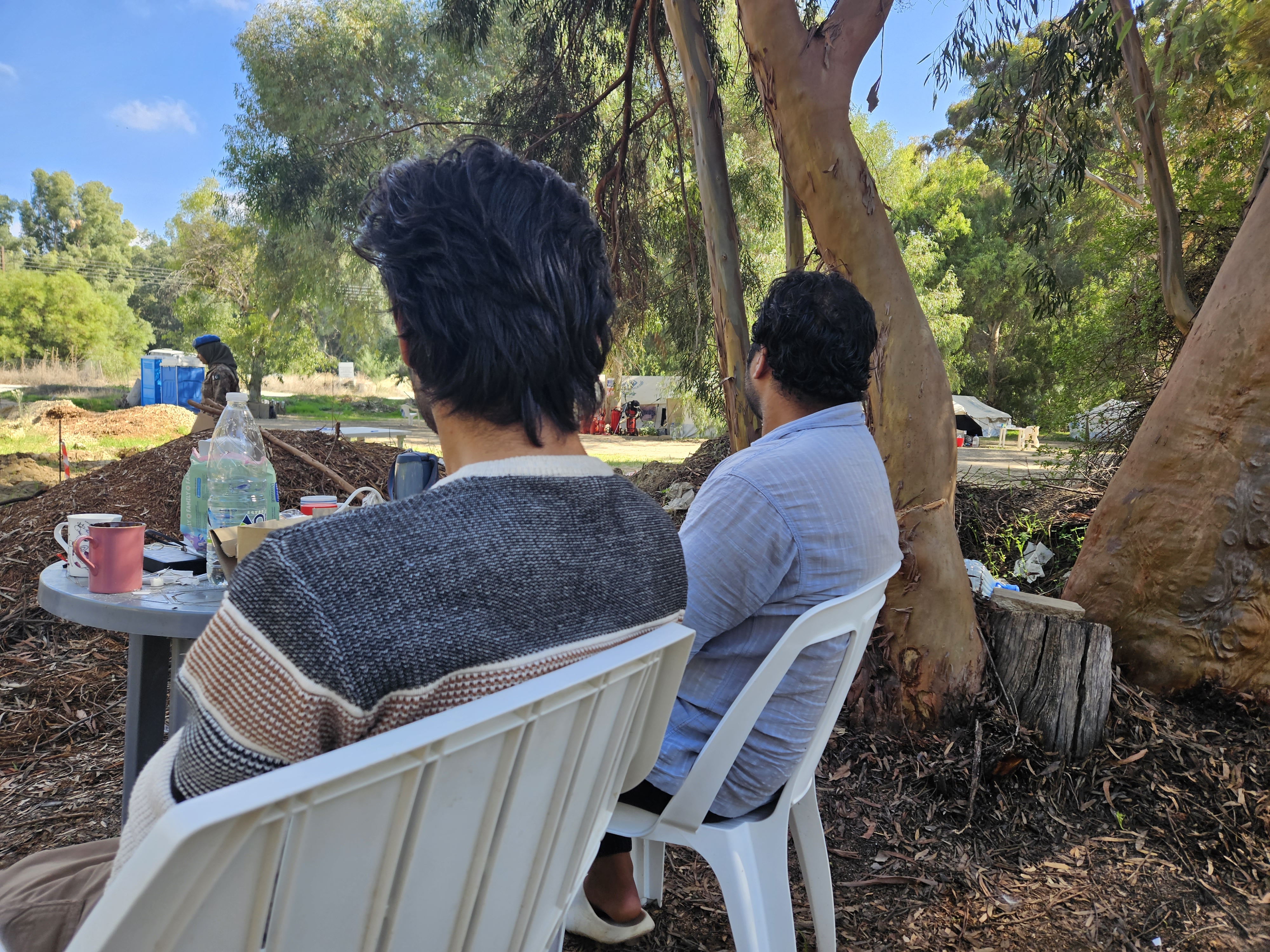The victims of the government’s new hardline regime, dozens of stranded migrants have been dismissed as a mere footnote in the migration crisis
Mention migrants, and you’re likely to be met with hostility. Everyone’s tired of the subject. Still, the asylum seekers who’ve been stuck in the UN buffer zone for several months now may be regarded as a special case.
What makes them special is partly how long they’ve been stuck in limbo – long enough (since mid-May, in some cases) to draw international attention and become the subject of an article in The Guardian.
The Cyprus Mail visited the buffer zone in the Aglandjia area in early July, when 25 people were camped there (with 12 more in a camp outside Akaki), and visited again last week.
A few things have changed in the interim. The number of stranded has climbed from 37 to 60, though only 16 are located here (the other 44 in Akaki): six Afghans, three Iranians, four Nigerians and three Somalis. The heat has subsided, but heavy rain flooded the tents a few weeks ago. Snakes are less active than in July, but mosquitos and flies are ferocious. Food is now provided by the Cyprus government – the same rations as in Pournara camp – instead of the UNHCR.
What’s changed most of all, however, is the context.
The flow of irregular migrants to Cyprus (which was threatening to become overwhelming) has slowed to a trickle in 2024, and the big drop happened in the past few months. There were 1,177 arrivals in March, and 1,123 in April – but only 219 in May, and 155 in June.
Clearly, something changed – and what changed is precisely the government’s new hardline policy, which is also the reason for the asylum seekers being stuck in the buffer zone.
This change in policy has official approval. It was striking to hear Ursula von der Leyen, speaking in Paphos earlier this month, congratulating Cyprus on its success in returning migrants to their country of origin.
Admittedly, she meant returning them after proper processing. We haven’t (yet?) reached the stage where the EU compliments a member state on successful pushbacks. Still, the contrast with 2015 – when another German politician, Angela Merkel, welcomed one million migrants into Germany – couldn’t be starker.
That’s another reason why the people in the buffer zone may be viewed as a special case: because they arrived right on the cusp, falling between the cracks.

Cyprus decided – unlawfully, one may add – to ignore its human-rights duty to examine asylum applications, in order to make a point. The point has now been made, the plummeting numbers reflecting the fact that the message got through; but the guinea pigs are still in the buffer zone.
They arrived with very different expectations (which, again, are the standard expectations for people in their situation). “We were even told, the police will take you – as long as you are asylum seekers – they will take you to the Pournara camp,” an Afghan named Muhammad (names have been changed) tells the Cyprus Mail.
“And [what happened] was a totally different experience, totally. We were not expecting it at all.”
Far from escorting them to the camp, the police forced Muhammad, his sister and sister-in-law into the buffer zone – even though, he claims, they’d already crossed into the Republic, had made it clear they were seeking asylum, and were asking locals to help call a taxi to take them to Pournara.
That said, the new hardline policy seems to be extremely popular. In fact, most Cypriots – even if they agreed that there’s something unfair in the plight of these particular migrants – are still likely to be unsympathetic overall.
The general view boils down to two common arguments: ‘Why not just send them back to the north, and/or Turkey?,’ and ‘But they shouldn’t have come here illegally in the first place.’
“I was trying, trying, trying every possibility to leave the country in a legal way,” says another Afghan named Essan, speaking of the time between the Taliban takeover in August 2021 – which was when he knew he had to leave, given his family’s links to the US embassy and the previous government – and his departure in 2023.
He applied for an MBA in the UK, and received (he says) unconditional offers from the Universities of Kent, Surrey and Leeds Beckett. He interviewed for, and got, a job in Dubai with “a very huge company”. He also applied to state universities in Germany, and received an offer in March 2022.

“I didn’t want, at all, to be somewhere illegally, or with no dignity,” he tells the Cyprus Mail in fluent English. “There is no dignity in this, that we came here,” he adds, looking around at the patch of buffer-zone forest. “We are receiving free food, free shelter and everything, which is a huge embarrassment. Throughout our life we have worked for things, we have earned them.”
Essan vehemently denies being an economic migrant, saying he led “a luxurious and a good life” back in Afghanistan. He fled in fear of his life, because “most of the people who served for the previous government have been ‘disappeared’.”
Alas, his application for a UK visa was rejected, the UAE government stopped issuing visas to Afghan nationals, and the German embassy never replied to his email. He appears to have ended up on our doorstep out of desperation – and, again, with the expectation that he’d at least be allowed to plead his case.
“I made every effort to be legal. Even now, I don’t want any type of financial compensation or accommodation. I will do that by myself. I just need to live with peace somewhere.”
As for sending them back to the occupied north, that won’t work either. There is “no asylum mechanism in the north”, points out UNHCR spokesperson Emilia Strovolidou.
On the contrary, if the migrants were returned, their illicit crossing to the south would be “considered trespassing in the buffer zone” – meaning they’d be criminally prosecuted and, almost certainly, deported back to their country “without assessing their international protection needs”.
Turkey itself does admittedly have an asylum system. Even that, however, isn’t safe or reliable – “They’re deporting everyone from Turkey,” says Essan – and it’s far from clear that Turkey would accept these migrants anyway.
Even just on a micro level, we have a worrying situation here, 60 people under physical and psychological stress. “Everyone has got mental issues,” says Muhammad. His sister-in-law, a young woman who was studying to be a nurse before ending up here, ducks into a tent and brings out the meds she’s being prescribed by a psychologist: Diazepam for anxiety and Escitalopram, an antidepressant. The doctor keeps upping her dose, says her brother-in-law.
But it’s also true, on a macro level, that most of these asylum seekers – meaning those from the Middle East – are fleeing wars stoked by Western interference or fought with Western weapons, or both.
Even now, we’re seeing terrible mayhem in the region, yet Cyprus and its EU partners are either keeping quiet about it or profiting hugely from it. What happens when it leads – as is likely – to a refugee crisis? Wouldn’t it be hypocritical to turn our backs on those people?
The stranded group in the buffer zone are a mere footnote, 60 asylum seekers who fell through the cracks. Still, behind every footnote is a human story.







Click here to change your cookie preferences